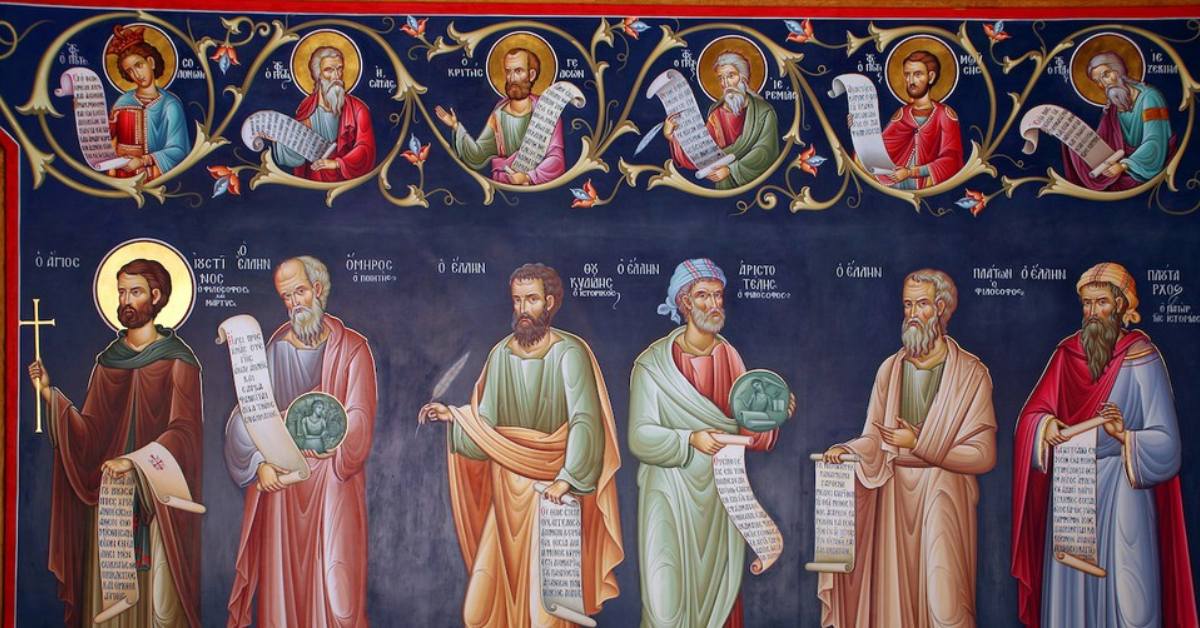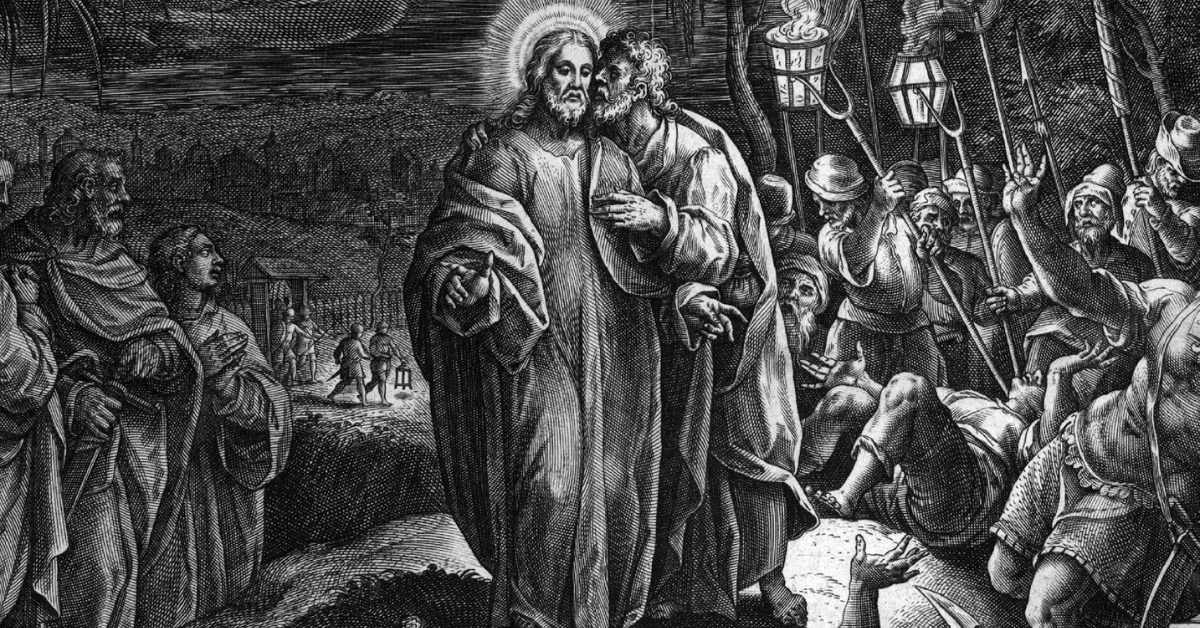The 12 Disciples of Jesus played pivotal roles in the foundation of Christianity, yet many people know little about their distinct characteristics and contributions. As we navigate the complexities of modern faith, understanding these disciples can provide essential context for our beliefs and practices today.
We’ll look at each disciple’s story, highlighting their challenges and triumphs while offering relevant lessons in our daily lives.
The Names of the 12 Disciples
The twelve disciples, chosen by Jesus, each carried unique backgrounds and personalities that shaped their contributions to the early Church. Here’s a closer look at these pivotal figures:
- The first, Simon, who is called Peter, and
- Andrew his brother; and
- James the son of Zebedee, and
- John his brother;
- Philip and
- Bartholomew (Nathanael);
- Thomas and
- Matthew the tax collector;
- James, the son of Alphaeus (James the Less), and
- Thaddaeus (Judas, son of James);
- Simon the Zealot, and
- Judas Iscariot, the one who betrayed Him.
Each disciple’s story contributes to a rich tapestry of faith, inviting readers to explore their journey through these historical lenses.
Peter and Andrew
Peter and Andrew’s journey from fishermen to disciples encapsulates the transformative power of faith. Their initial life by the Sea of Galilee was steeped in routine, yet it was this very ordinariness that prepared them for an extraordinary calling.
When Jesus invited them to become fishers of men, He wasn’t merely offering a new vocation; He was proposing a radical shift in purpose and identity. This metaphor speaks volumes about their future role in spreading the Gospel, emphasizing the need to engage with others and draw them into a relationship with God.
The dynamic between the brothers also sheds light on the importance of relationships in spiritual journeys. Andrew’s pivotal role as the one who brought Peter to Christ illustrates how personal connections can facilitate profound encounters with faith.
Peter and Andrew exemplify how community and familial ties can be harnessed for a greater mission, reminding us that our connections can often serve as conduits for divine purposes.
James and John—Sons of Zebedee
James and John, the Sons of Zebedee, represent a fascinating dynamic within Jesus’ circle of disciples. While James often remains in the shadow of his younger brother, John’s prominence in the Gospel narrative reveals a compelling contrast between their personalities and roles.
James, described as passionate and fervent, was not just a fisherman but a figure embodying a resolute spirit that would ultimately lead him to martyrdom. His fiery nature earned him the nickname Sons of Thunder, a testament to his zealous character and perhaps a nod to the intensity with which he approached both life and faith.
James
James, the elder brother of John, often exists in the shadows of the more vocal disciples, yet his quiet strength and pivotal experiences reveal a profound depth of character. As one of Jesus’ inner three, he witnessed extraordinary moments that shaped the early Christian narrative.
Being the first disciple to be martyred, his beheading is a stark reminder of the risks faced by those who follow Jesus wholeheartedly. In reflecting on James’ life, we are encouraged to consider how even the quieter voices among us can leave an indelible mark on history through their faithfulness and courage.
John
John’s profound connection to Jesus is evident not only in his writings but also in his unique perspective on love. As the disciple whom Jesus loved, John experienced an intimacy with Christ that shaped his understanding of divine affection.
This deep relationship allowed him to convey the essence of love more vividly than any other New Testament author, emphasizing that love is not just an emotion but a foundational principle of Christian life.
In his letters, particularly in 1 John, he boldly states that God is love, inviting believers to reflect on how this truth should influence their relationships with one another.
Philip
Philip stands out in the New Testament not just for his name, which carries Greek roots, but for his profound role as an evangelist. His immediate response to Jesus’ call to follow Me suggests a readiness and eagerness that is often overshadowed by more prominent disciples.
What makes Philip particularly compelling is his quick transition from follower to evangelist; he eagerly seeks out Nathanael, sharing the exhilarating news that the long-awaited Messiah has arrived. This act of bringing others to Christ highlights Philip’s deep understanding of the Scriptures and a heart aligned with God’s mission.
Nathanael
Nathanael, also known as Bartholomew, represents a compelling journey from skepticism to unwavering faith. His missionary work in India and the translation of the Gospel of Matthew into local languages reflect Nathanael’s commitment to spreading the teachings of Christ beyond the familiar confines of his own culture.
Enduring persecution and ultimately martyrdom in Albinopolis, Armenia, Nathanael’s life story resonates deeply with those who grapple with their beliefs. His steadfastness in the face of adversity serves as a poignant reminder that true faith often requires sacrifice and courage, inspiring countless individuals to embrace their convictions even when faced with hostility.
Matthew
Matthew, also known as Levi, stands as a striking figure in the Gospel narrative. Once a tax collector, he occupied a role that was synonymous with betrayal and greed in first-century Israel. Tax collectors were not only agents of the Roman Empire but also seen as traitors by their fellow Jews, often exploiting their position to enrich themselves at the expense of their people.
The scene of Jesus dining with tax collectors and sinners reveals a profound truth about the heart of His mission. While the Pharisees maintained strict boundaries around righteousness, Jesus tore down those walls, inviting the marginalized into communion with Him.
Thomas
Thomas, often labeled as Doubting Thomas, embodies a complex character that extends beyond mere skepticism. In a moment when fear gripped the other disciples, Thomas stepped forward, ready to face potential death alongside Jesus. This willingness to confront danger illustrates a depth of commitment that challenges the stereotype of him as solely a pessimist.
By questioning and seeking understanding, Thomas embodies a journey many believers experience: the struggle between belief and disbelief. His story encourages us to embrace our doubts, recognizing that they can lead to deeper truths and a more profound relationship with faith.
James the Less
James the Less, often overshadowed by his more prominent counterparts among the twelve disciples, invites us to reflect on the significance of those who serve quietly yet faithfully. His designation as the Less might suggest a lesser role, but it also highlights a profound truth: greatness in God’s kingdom is not always defined by visibility or acclaim.
James the Less embodies the idea that every believer, regardless of their public recognition, plays a crucial role in the advancement of God’s kingdom. You can Also Check the history and symbols of Easter.
Simon the Zealot
Simon the Zealot’s background as a political activist offers a fascinating lens through which to view his role among the apostles. In a time when fervent nationalism was prevalent, Simon’s passion for Israel mirrored the very zeal he later directed towards his faith in Christ.
This transformation from a political revolutionary to a devoted follower of Jesus highlights a profound shift in allegiance, one that underscores the revolutionary nature of Christ’s message itself.
The choice of Simon as an apostle also raises intriguing questions about Jesus’ strategy in building his ministry. By selecting individuals with diverse backgrounds and experiences, including those who once fought for political causes, Jesus demonstrated that His mission transcended earthly boundaries.
Judas, son of James
Judas, son of James, often remains overshadowed by his more prominent peers among the Twelve Apostles, yet his story is rich with significance. His inquiry in John 14:22 reflects a profound yearning for understanding, a desire to grasp the nature of Christ’s mission.
This question reveals not only his curiosity but also the tension between the private revelations given to the disciples and the broader message of salvation intended for the world. Jesus’ response, emphasizing love as the key to divine revelation, underscores a core tenet of Christian faith: that intimacy with God is accessible to all who genuinely seek it.
Judas Iscariot
Judas Iscariot’s role in the New Testament is often overshadowed by his infamous betrayal, yet his story invites deeper reflection on the nature of loyalty and the complexities of human choice. As one of the twelve disciples, Judas witnessed countless miracles and teachings firsthand, yet his heart remained untouched by the transformative power of Jesus’ message.
This paradox raises questions about the influence of external appearances versus internal convictions; despite his proximity to the divine, Judas chose a path that ultimately led to his downfall.
The thirty pieces of silver he accepted in exchange for betraying Jesus serve as a stark reminder of how easily one can be swayed by material gain. In a world where instant gratification often trumps long-term fulfillment, Judas embodies the tragic consequences of prioritizing earthly rewards over spiritual truths.
Conclusion
The twelve disciples of Jesus represent a diverse group of individuals who played pivotal roles in the foundation of Christianity. Each disciple brought unique qualities and experiences that contributed to the spread of Jesus’ teachings.
By examining their lives, we gain valuable insights into the complexities of faith, leadership, and perseverance. Their commitment to Christ serves as an enduring example for modern believers seeking to navigate their spiritual journeys.
As you reflect on the lessons learned from these disciples, consider how you can apply their principles in your daily life to strengthen your faith.





